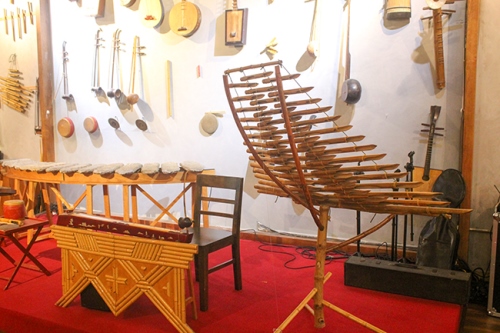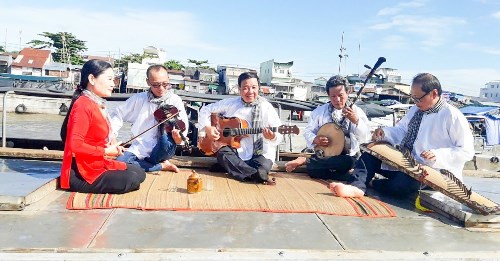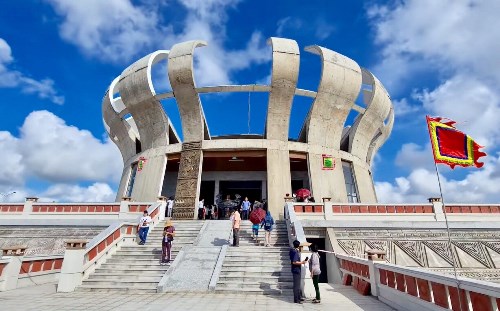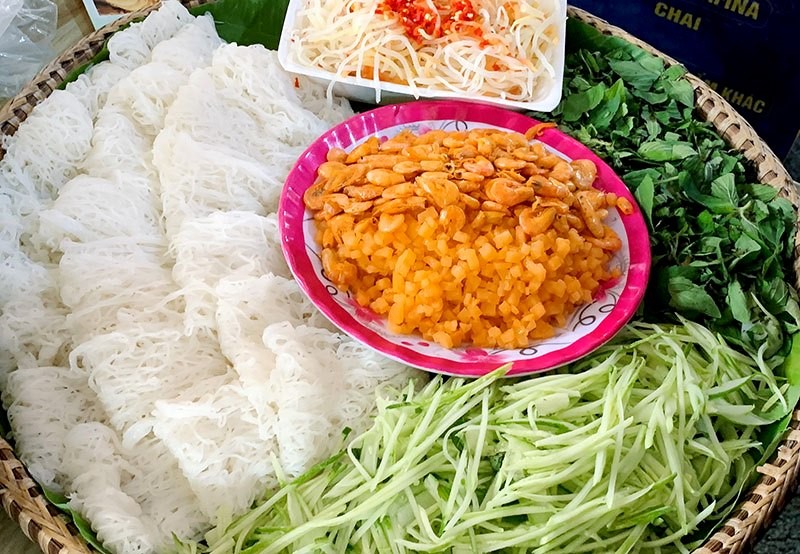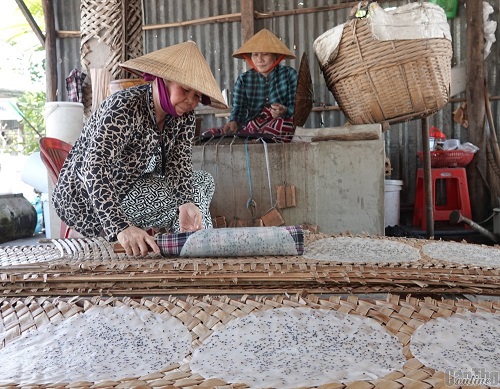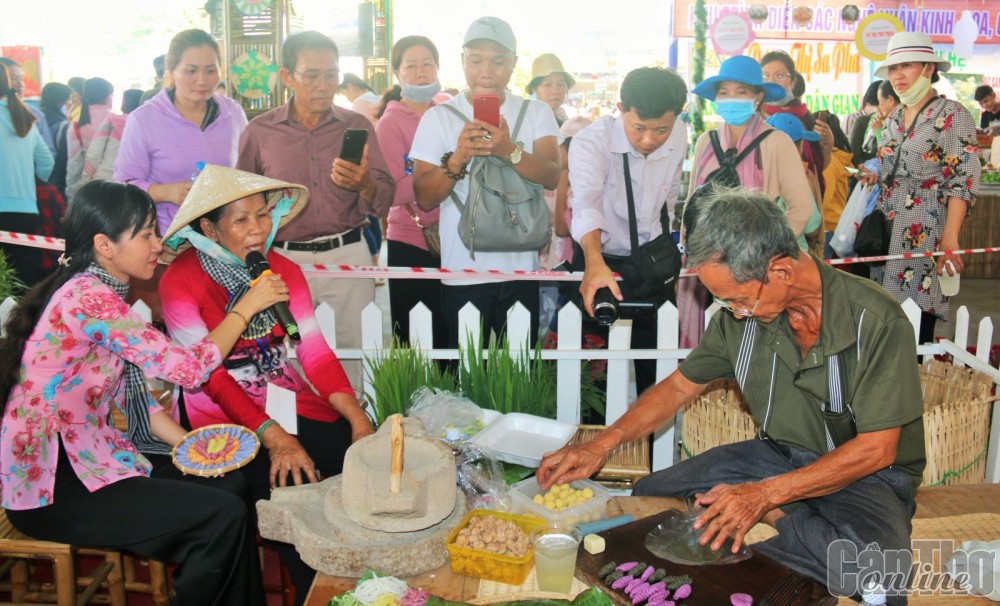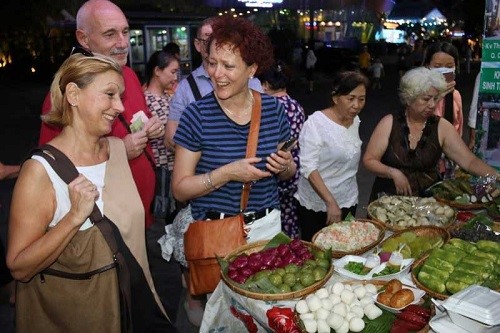
During the seminar, Dr. Bui Thanh Thao, the Dean of the Faculty of Social Sciences and Humanities at Can Tho University, identified the human and cultural factors of the Mekong Delta that contribute to its economic and societal development. According to Dr. Bui Thanh Thao, the people of the Southwest region are characterized by traits such as being honorable, generous, affectionate, tolerant, dynamic, creative, liberal, responsible, optimistic, and appreciative of life. They are also known for their gratitude and hospitality. Furthermore, the Mekong Delta region has a unique cultural identity that is shaped by its river and garden culture. The convergence and harmony of different cultures further enhance the region's character. In addition, the area boasts a wide range of diverse cultural heritage, from tangible to intangible resources. For centuries, these resources have contributed to the economic, social, and human development of the Mekong Delta.
Prof. Dr. Ha Thanh Toan, the Principal of Can Tho University, has stated that culture is a crucial resource for the sustainable development of a country. He believes that it is a measure and a criterion for evaluating development in the long run. This viewpoint is also clearly expressed in the Government's Resolution No. 120 on sustainable development of the Mekong Delta to adapt to climate change. The resolution emphasizes the need to create sustainable and prosperous development by proactively adapting to the challenges, promoting the region's potentials and strengths, and ensuring a stable and prosperous life for the people while preserving the unique cultural values of the Mekong Delta.
Can Tho University, as the founder and operator of SDMD 2045, prioritizes the preservation and development of indigenous culture, alongside economics, society, science, and technology. According to Prof. Dr. Ha Thanh Toan, promoting cultural resources and creating "soft power" is crucial for the sustainable development of the Mekong Delta. Culture is an important asset that promotes other resources, creating synergy for sustainable development. The localities in the Mekong Delta will optimally exploit their potential and develop culture synchronously with the economy and society.
According to Dr. Le Thanh Hoa, who is the Head of the Department of Urban Studies at the University of Social Sciences and Humanities, Ho Chi Minh City National University, the Mekong Delta has a rich and diverse national culture. After more than 300 years of exploration, this region has established and maintained a unique cultural heritage. The fluvial culture and the unique pagoda architecture, inspired by different art backgrounds from across the world, are particularly noteworthy. The Mekong Delta is also home to over 300 traditional craft villages and approximately 30 craft villages that have been established for more than a century, which is a huge advantage. If these resources are utilized properly to create effective tourism and handicraft products, they could contribute significantly to the development of the Mekong Delta in the current trend of integration.
When discussing the promotion of indigenous culture for socio-economic development, Dr. Bui Thanh Thao emphasized the importance of upgrading the team of cultural workers and increasing resources for culture and education. Education is crucial, and the level of state investment in culture should correspond to the level of economic growth. To further promote cultural development, socialization should be encouraged to mobilize sources of investment, sponsorship, and donations. It is essential to establish institutions for the education and cultural development of children and individuals. The private sector should be incentivized through preferential mechanisms and policies on land, credit, taxes, and fees for investing in these facilities and institutions. Additionally, the formation of training funds, promotion of studies, talent development, literature and art promotion, cinema development, and publishing support should be encouraged. Dr. Bui Thanh Thao also suggested that it is necessary to construct several significant cultural projects, increase investment in theoretical research, and summarize practices to enhance the ability to predict and direct cultural and human development. These measures will help in the sustainable and comprehensive exploitation of indigenous culture.
Dr. Pham Van Thuy, Deputy Director of the Vietnam National Tourism Administration, believes that the Mekong Delta has yet to fully exploit its cultural strengths in tourism. Despite the expected surge in tourism in 2022 as the region recovers from the COVID-19 pandemic, the Mekong Delta's total revenue will only account for approximately 7.35% of the country's overall tourism revenue. When assessing the advantages and challenges of Mekong Delta tourism in the coming years, Dr. Pham Van Thuy highlighted the need for localities to have clear strategic orientations for developing specific, important, and supporting tourism products. This should include a tourism market development orientation, as well as a tourism development spatial organization and investment orientation. In terms of tourism space organization, the focus should be on developing Can Tho City and Phu Quoc City in Kien Giang province to become two major tourism centers in the region.
Dr. Pham Van Thuy emphasized the importance of successfully implementing strategic orientations for tourism development in the Mekong Delta. This requires effective and sustainable exploitation of specific resource values and creating efficiency consistent with development orientation. For traveling within the whole country, there are three fundamental elements. The decisive factor is the unified attention and close direction of the political system and authorities at all levels of the provinces and cities in the region. To promote tourism and achieve sustainable economic development, governments must implement preferential mechanisms and policies to attract investments. This will create momentum, spillover effects in other economic sectors, and increase tourists' spending. By doing so, tourism can become a key driver for economic growth and development. The crucial factor that contributes to the synchronous and effective development of tourism throughout the region is the coordination mechanism for tourism development between the localities in the region, along with their effective linkage with Ho Chi Minh City, which serves as the largest tourist coordination center in the country.
According to Dr. Pham Van Thuy, Deputy Director of the Vietnam National Tourism Administration, the Mekong Delta boasts unique cultural tourism resources that are characterized by the traditional culture and lifestyle of its people. They are known for their kindness, simplicity, and loyalty to their homeland. This distinctiveness has been evident throughout history, especially in their efforts to protect and develop the country. The region's traditional culture and community activities reflect this way of life, which is deeply ingrained in their society.
Source: Can Tho News - Translated by Hoang Dat





